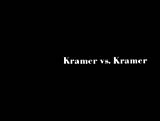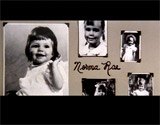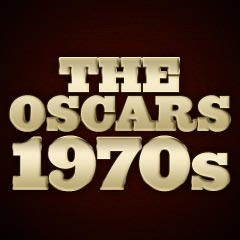|
1979
The winner is listed first, in CAPITAL letters.
|
Best Picture
|

|

|

|

|

|
|
KRAMER VS. KRAMER (1979)
|
All That Jazz (1979)
|
 Apocalypse Now (1979) Apocalypse Now (1979) |
Breaking Away (1979)
|
Norma Rae (1979)
|
Actor:
DUSTIN HOFFMAN in "Kramer vs. Kramer", Jack Lemmon
in "The China Syndrome", Al Pacino in "...And
Justice For All", Roy Scheider in "All That Jazz",
Peter Sellers in "Being There"
Actress:
SALLY FIELD in "Norma Rae", Jill Clayburgh in "Starting
Over", Jane Fonda in
"The China Syndrome", Marsha Mason in "Chapter
Two", Bette Midler in "The Rose"
Supporting Actor:
MELVYN DOUGLAS in "Being There",
Robert Duvall in  "Apocalypse
Now", Frederic Forrest in "The Rose", Justin
Henry in
"Kramer vs. Kramer", Mickey Rooney in "The Black
Stallion" "Apocalypse
Now", Frederic Forrest in "The Rose", Justin
Henry in
"Kramer vs. Kramer", Mickey Rooney in "The Black
Stallion"
Supporting Actress:
MERYL STREEP in "Kramer vs. Kramer", Jane Alexander
in "Kramer vs. Kramer", Barbarie Barrie in "Breaking
Away", Candice Bergen in "Starting Over", Mariel
Hemingway in "Manhattan"
Director:
ROBERT BENTON for "Kramer vs. Kramer", Francis Ford
Coppola for  "Apocalypse
Now", Bob Fosse for "All That Jazz", Edouard
Molinaro for "La Cage Aux Folles", Peter Yates for "Breaking
Away" "Apocalypse
Now", Bob Fosse for "All That Jazz", Edouard
Molinaro for "La Cage Aux Folles", Peter Yates for "Breaking
Away"
 The
major award winner in 1979 was director/screenwriter Robert
Benton's commercially-successful, inexpensive film Kramer
vs. Kramer - the dramatic story of separation, divorce
and a dramatic custody battle between a splitting couple. The
story was based on Avery Corman's best-selling 1977 novel about
the timely issues of child custody, divorce, feminism and gender-appropriate
parental roles, motherhood vs. career, etc. [Two other family-related
Best Pictures would follow in just a few years, Robert Redford's Ordinary
People (1980) and Terms of Endearment
(1983).] The
major award winner in 1979 was director/screenwriter Robert
Benton's commercially-successful, inexpensive film Kramer
vs. Kramer - the dramatic story of separation, divorce
and a dramatic custody battle between a splitting couple. The
story was based on Avery Corman's best-selling 1977 novel about
the timely issues of child custody, divorce, feminism and gender-appropriate
parental roles, motherhood vs. career, etc. [Two other family-related
Best Pictures would follow in just a few years, Robert Redford's Ordinary
People (1980) and Terms of Endearment
(1983).]
The winning picture won five awards out
of its nine nominations - Best Picture, Best Actor,
Best Supporting Actress, Best Director, and Best Screenplay
Adaptation (Robert Benton). All four major cast members (Hoffman,
Streep, Henry, and Alexander) were nominated, with the two
lead stars both winning in their categories. The Best Director
award was presented to Robert Benton (with his first directorial
nomination and win) - it was a double win for Benton
- he also won the Best Screenplay award for his screenplay
adapted from Corman's novel.
Two of the other strongest contenders for Best
Picture stretched the limits of mainstream filmmaking in the
late 70s, and were much more gut-wrenching and audacious than
the winner:
- director Francis Ford Coppola's unforgettable
anti-Vietnamese war epic masterpiece adapted and inspired
from Joseph Conrad's Heart of Darkness,
 Apocalypse
Now (with eight nominations and only two wins for
Best Sound and Best Cinematography (Vittorio Storaro), the
complex story of an assassination-motivated journey up a
river into Cambodia and into darker hallucinatory and psychedelic
recesses Apocalypse
Now (with eight nominations and only two wins for
Best Sound and Best Cinematography (Vittorio Storaro), the
complex story of an assassination-motivated journey up a
river into Cambodia and into darker hallucinatory and psychedelic
recesses
- director / dancer / choreographer Bob Fosse's
semi-autobiographical, visually-imaginative 'musical' All
That Jazz (with nine nominations and four wins - Best
Art Direction/Set Decoration, Best Original Score Adaptation,
Best Film Editing, and Best Costume Design), the autobiographical
story of a relentless, but gifted choreographer
The other two nominated films for Best Picture
included Martin Ritt's Norma Rae (with four nominations
and two wins - Best Actress and Best Original Song), the authentic
re-creation of the melodramatic story of an uneducated, southern
textile worker who unionizes her mill, and British director
Peter Yates' low-budget sleeper comedy Breaking Away (with
five nominations and one win for Steve Tesich's Original Screenplay),
an original, coming-of-age tale of growing up, bicycle racing,
love, and class distinctions (between town and gown in working-class
Bloomington, an Indiana university town).
Except for Norma Rae's director Martin
Ritt, all the other directors were nominated for Best Director.
The fifth director nominated for the award was Edouard Molinaro
for La Cage Aux Folles (with three nominations and no
wins), a funny French comedy (with English subtitles) about
two lovers who masquerade as husband and wife - the film was
the biggest grossing foreign-language film ever released
in the United States up to that time.
Dustin Hoffman (with his fourth nomination, following
nominations in 1967, 1969, and 1974, and his first Oscar
win) won the Best Actor award for his role in the melodrama Kramer
vs. Kramer as Ted Kramer, a workaholic advertising agency
art director and a middle-class single father who must juggle
the pressures of career and family to care for his young son.
Hoffman's competition was formidable:
- Jack Lemmon (with his sixth of eight career
nominations) as Jack Godell, an anxious, unstable, conscience-stricken
nuclear power plant supervisor in the thrilling, anti-nuclear
production The China Syndrome (with four nominations
and no wins)
- Al Pacino (with his fifth nomination) as Arthur
Kirkland - an earnest, young defense attorney who defends
a judge on a rape charge in director Norman Jewison's melodramatic
and histrionics-filled ...And Justice For All (with
two nominations and no wins)
- Roy Scheider as self-destructive, pill-popping,
chain-smoking Broadway director/choreographer Joe Gideon
who dances between the extremes of love and death in All
That Jazz
- Peter Sellers (with his second and last unsuccessful
nomination - and in his next to last film
role) was nominated for his memorable, unique role as Chance,
an ignorant, illiterate gardener who has learned everything
from watching television and is treated as a wise sage in
director Hal Ashby's satirical dark comedy Being
There (with two nominations and one win - Best Supporting
Actor)
Former Gidget star Sally Field won the
Best Actress award for her acclaimed performance in the title
role of Norma Rae as the widowed, gutsy and fiesty loommaker,
a Southern working-class textile employee who campaigns with
a Jewish, New York labor organizer (Ron Liebman) to unionize
her mill and pursue justice - it was her first nomination
and win. In a famous scene, she stands on a table to inspire
her co-workers. Her four other competitors were:
- Jane Fonda (with her fifth of seven career
nominations) as television news reporter Kimberly Wells doing
a story on nuclear energy at a nuclear power plant in the
midst of an accident in The China Syndrome
- Marsha Mason (with her third of four unsuccessful
nominations) as Jennie MacLaine - a recently-divorced actress
in her husband Neil Simon's adaptation of his own Broadway
play (and a story based on their own marriage) - Chapter
Two (the film's sole nomination)
- Bette Midler (with her first of two unsuccessful
career nominations) in her first starring role as
'Rose' - a tragic, self-destructive, Janis Joplin-like rock
star in Mark Rydell's The Rose (with four nominations
and no wins)
- Jill Clayburgh (with her second unsuccessful
nomination) as lonely-hearts schoolteacher Marilyn Homberg
(and Burt Reynolds' love interest) in Alan J. Pakula's Starting
Over (with two nominations and no wins)
79 year-old Melvyn Douglas won his second and
final Academy Award for Best Supporting Actor (his first was
for Hud (1963)) as Benjamin Rand
- an ailing and dying, political millionaire/financier who
is in awe of the homespun wisdom of ignorant and illiterate
gardener Chance (Peter Sellers) and brings him to the attention
of the President (Jack Warden) in Being
There.
The other Best Supporting Actor nominees were:
- 59 year-old Mickey Rooney (with his fourth
and last unsuccessful career nomination) as former horse
trainer Henry Dailey in director Carroll Ballard's beautiful
directorial debut about a young boy and a wild black Arabian
stallion in The Black Stallion (with two nominations
and no wins - but with a Special Award for Sound Editing)
- Robert Duvall (with his second nomination)
as surf-loving, half-mad, Air Cavalry Colonel Kilgore in
 Apocalypse
Now Apocalypse
Now
- Frederic Forrest (with his sole nomination)
as chauffeur Houston Dyer in The Rose
- 8 year-old Justin Henry (with his sole nomination)
as Dustin Hoffman's son Billy in Kramer vs. Kramer -
he became the youngest-ever nominee in the Best Supporting
Actor category
[The greatest time span in ages occurred in this
category between two competing actors - almost 70 years between
the ages of Melvyn Douglas and Justin Henry. If Justin Henry
had won, he would have been the youngest winner in Oscar
history. Justin's two screen parents won the Oscars for their
roles in Kramer vs. Kramer.]
Meryl Streep (with her second Best Supporting
Actress nomination) won her first Oscar (why wasn't
she nominated in the Best Actress category?), as independent
Joanna Kramer who leaves her husband Ted and son (Justin Henry),
but then returns and sues for custody in a courtroom custody
battle in Kramer vs. Kramer. Streep was appearing in
her second successive Best Picture, following her performance
in last year's Best Picture winner The
Deer Hunter (1978). Streep's co-star Jane Alexander
(with her third of four unsuccessful nominations) was also
nominated as Margaret Phelps - Ted's sympathetic neighbor,
in Kramer vs. Kramer.
The other three Best Supporting Actress nominees
were:
- 18 year-old Mariel Hemingway (with her sole
career nomination) as Tracy - a drama student and 42 year
old Isaac's (co-writer/director Woody Allen) teenage girlfriend
(she was 16 years old during filming) in an ill-fated romance,
in Manhattan (with two nominations and no wins)
- Barbara Barrie (with her sole nomination)
as working-class mom Mrs. Stohler (the bicycle racer's mother),
in Breaking Away
- Candice Bergen (with her sole nomination)
as Jessica Potter - Burt Reynolds' estranged wife, in the
romantic comedy Starting Over
An Honorary Oscar was presented to Alec Guinness
this year, although he had already won a Best Actor Oscar for
his performance in  The
Bridge on the River Kwai (1957). By the time of this
award, he had also received a Best Actor nomination for The
Lavender Hill Mob (1952), a Best Adapted Screenplay nomination
for The Horse's Mouth (1958), and a Best Supporting
Actor nomination for The
Bridge on the River Kwai (1957). By the time of this
award, he had also received a Best Actor nomination for The
Lavender Hill Mob (1952), a Best Adapted Screenplay nomination
for The Horse's Mouth (1958), and a Best Supporting
Actor nomination for  Star
Wars (1977). Star
Wars (1977).
Oscar Snubs and Omissions:
Woody Allen was not nominated as director or
star (as TV comedy writer Isaac Davis) of Manhattan,
one of his best films and his first film since Oscar-winning  Annie
Hall (1977). The film received only two nominations,
for Best Original Screenplay (a co-scripted effort by Woody
Allen and Marshall Brickman) and Best Supporting Actress (for
Mariel Hemingway), while neglecting the performances of its
stars Diane Keaton as Mary Wilke, and Michael Murphy as Yale.
Allen's film was also neglected for its 70 mm Panavision B/W
cinematography by oft-overlooked Gordon Willis - possibly the
best work of his career. In fact, Manhattan should have
been a Best Picture nominee. Annie
Hall (1977). The film received only two nominations,
for Best Original Screenplay (a co-scripted effort by Woody
Allen and Marshall Brickman) and Best Supporting Actress (for
Mariel Hemingway), while neglecting the performances of its
stars Diane Keaton as Mary Wilke, and Michael Murphy as Yale.
Allen's film was also neglected for its 70 mm Panavision B/W
cinematography by oft-overlooked Gordon Willis - possibly the
best work of his career. In fact, Manhattan should have
been a Best Picture nominee.
The China Syndrome was neglected as a
Best Picture nominee (for producer Michael Douglas) and Best
Director nominee for its co-scriptwriter James Bridges. Being
There (with two nominations, one successful for its
supporting actor Melvyn Douglas) was likewise ignored as a
Best Picture or Best Director nominee for director Hal Ashby.
Martin Ritt was left out of the Best Director nominees for
his work on Norma Rae, as was Ron Leibman for his acting
role as labor organizer Reuben Warshawky.
Producer/director Don Siegel's taut prison breakout
film Escape From Alcatraz, with Clint Eastwood as the
calculating inmate/escapee Frank Morris, was completely overlooked.
Various other films and their directors were also bypassed
as Best Picture and Best Director nominees:
- Carroll Ballard's cinematographically-perfect The
Black Stallion which was produced by Francis Ford Coppola,
and featured beautiful photography by Caleb Deschenel
- George Roy Hill's lightweight romantic comedy A
Little Romance (with only two nominations, for Best
Score (win) and Best Adapted Screenplay), starring Laurence
Olivier and Diane Lane
- producer/director Blake Edwards' 10 with
Dudley Moore as George and Bo Derek as Jenny - the fantasy
object of his lust
- Ridley Scott's imaginatively-terrific sci-fi
horror film Alien with Sigourney
Weaver as the heroine Ripley, and with an under-stated performance
by Veronica Cartwright as one of the spooked astronauts
- Michael Apted's Agatha, starring Dustin
Hoffman and Vanessa Redgrave
- Ted Kotcheff's un-nominated NFL pro-football
expose North Dallas Forty with Nick Nolte as jaded,
rebellious North Dallas Bulls player Phillip Elliott
- director Peter Bogdanovich's Saint Jack with
Ben Gazzara as an American pimp in Singapore named Jack Flowers,
and Denholm Elliott as his British businessman/friend William
Leigh
Dennis Christopher as bike-racer Dave Stohler
and Paul Dooley as his father were both un-nominated for their
great performances in Breaking Away. And Peter Falk
was denied a nomination for his role as masterminding thief
Vince Ricardo in Arthur Hiller's comedy/caper film The In-Laws.
Marlon Brando as Col. Kurtz was missing as a Best Supporting
Actor nominee in  Apocalypse
Now. Klaus Kinski - in the title role in Werner Herzog's
remake Nosferatu, The Vampyre of the original 1922
F.W. Murnau classic (starring Max Schreck) was also lacking
a nomination. Apocalypse
Now. Klaus Kinski - in the title role in Werner Herzog's
remake Nosferatu, The Vampyre of the original 1922
F.W. Murnau classic (starring Max Schreck) was also lacking
a nomination.
|

![]()